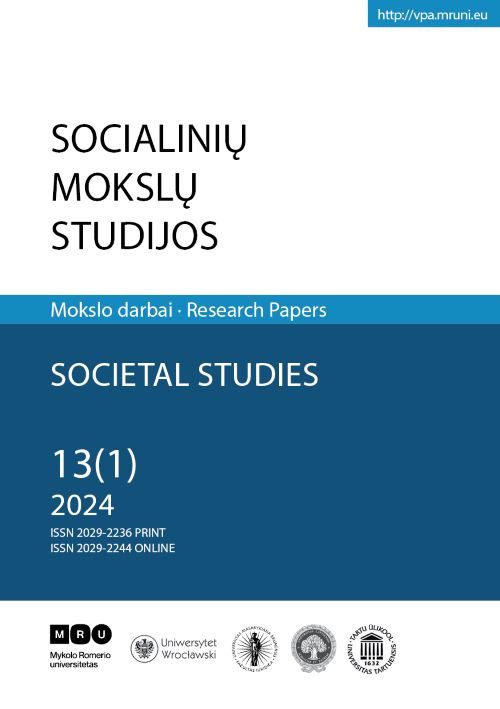DISCUSSIONS ON PIERRE TEILHARD DE CHARDIN’S CONCEPT OF EVOLUTION IN THE PRESS OF LITHUANIAN EMMIGRANTS IN THE SIXTIES OF THE 20TH CENTURY
##plugins.themes.bootstrap3.article.main##
Abstract
The article examines the reception of the concept of evolution by Pierre Teilhard de Chardin (1881-1955), a French scientist and religious thinker, among the emigrant authors in the seventh decade of the 20th century. Teilhard was first mentioned in the Lithuanian emigrant press in September 1950, in the publication of the translation of an article by the French Jesuit Jean Daniélou in the journal “Aidai.” The emigrant thinkers themselves began to delve into Teilhard’s ideas only in the second half of the sixties. Catholic priests Ambrozijus Prakapas, Jonas Kubilius, Petras Celiešius, Vytautas Bagdanavičius, Vytautas Zakaras, chemist Jonas Rugis, and mathematician Arūnas Liulevičius read lectures that generated interest and discussions in various Lithuanian emigrant circles. In 1961, in the journal “Aidai,” priest Pranas Gaida-Gaidamavičius published an article titled “Viešpatijos naujos
epochos brėkšmėj” (In the Dawn of a New Epoch of the Lord), which included the first printed polemic with Teilhard’s ideas presented in his book “The Future of Man.” In 1963, the first comprehensive publication on Teilhard’s ideas appeared in the journal “Tėviškės žiburiai”, authored by Antanas Pamituviškis, who specifically described Teilhard’s ideas and expressed agreement with all of them. Later, the aforementioned authors and priests Juozas Prunskis, Feliksas Jucevičius, Juozas Venckus, Kęstutis Trimakas, Ambrozijus Prakapas, Antanas Paškus, Juozas Vaišnora, as well as philosopher Antanas Maceina, historian Juozas Jakštas, and physicist Andrius Ignaitis published articles on Teilhard’s conception in the newspaper “Draugas” and in the journals “Aidai” and “Laiškai lietuviams”. The discussions about Teilhard’s conception also attracted the interest of priest Tomas Žiūraitis, who came up with the idea of publishing reviews of foreign authors’ worldview-oriented books in the journal “Aidai,” which he implemented between 1965 and 1969. The opinions of emigrant thinkers about the relationship between Teilhard’s concept of evolution and Christianity varied greatly, ranging from particularly positive assessments by priests Kubilius and Prunskis to the most radically negative evaluations by journalist Juozas Mačernis. The most active polemic arose between Maceina and Paškus, with other authors also joining in. Most discussions developed regarding the relationship of Teilhard’s teaching with science, its ontological foundations, the relationship between the concepts of “Alpha” and “Omega” and the Catholic understanding of divinity, as well as the relationship between divine grace and the active role of human actions in determining the future of individuals and all of humanity.
##plugins.themes.bootstrap3.article.details##
Authors retain copyright of their work, with first publication rights granted to the Association for Learning Technology.







